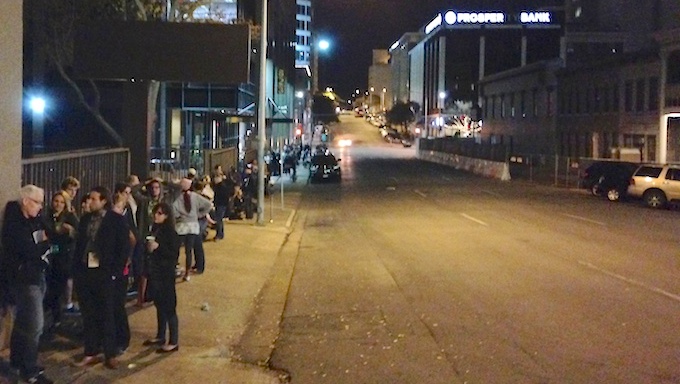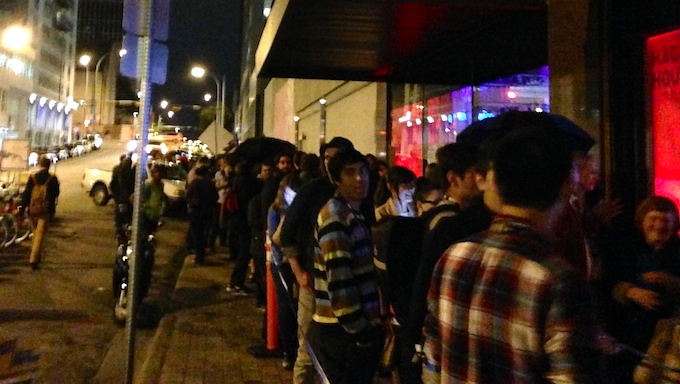
Wes Anderson is a Texan, but he belongs to the world. At least, he spends more time making movies about far-flung locales (say Budapest) than Houston, the city in which he was born and raised; Austin, where he was educated; or Dallas, where he launched his career.
That made his return to the state capital, at the SXSW screening of his new movie, The Grand Budapest Hotel, a particularly hot ticket. In fact, it was a screening without recent precedent. The film, which opened last Friday in New York and Los Angeles—cities from which a fair number of SXSW attendees hail—and sees a wide release on the 14th, attracted well beyond the 1,200-person capacity of the Paramount Theater. It’s unusual, given the size of the venue, for badgeholders who line up more than an hour in advance of the screening to find themselves without a seat, but the official SXSW Twitter account warned fans by 7:30pm that the 9pm screening was already full.


Still, they lined up in staggering numbers, a testament to how beloved Anderson and his quirky, colorful, highly-stylized films about oddball characters are. The line began a few feet outside of the entrance to the Paramount Theater on Congress Avenue, wrapped around the corner down 8th Street, and then stretched down the block onto Brazos, before wrapping back up the same stretch of sidewalk, across 8th Street and all the way up 9th, at which point it wrapped around the corner and found itself once more on Congress Ave. Additionally, another city block’s worth of people lined up starting on the opposite side of the theater’s doors, consisting of fans wearing lower-priority wristbands who—presumably futilely—hoped to be able to attend.


In all, the line for the screening stretched well over six blocks, unheard of even at a festival and in a town that is, frankly, famous for people’s eagerness to stand in very long lines for things.

Caroline Schram, the SXSW volunteer who was responsible for structuring the line and for wearing the “end of line” vest that told newcomers where to stand, as the line snaked its way throughout downtown Austin, explained that it started early. “We were sitting Cesar Chavez at about 5:20,” she explained. “Immediately after that, the first five people were in line.”

That is, bear in mind, a three-and-a-half hour wait to get in to a movie that is already playing in two of the nation’s largest cities, and which will be accessible to anyone who wants to buy a ticket in Austin or dozens of other places throughout the country by the week’s end.
Anderson’s films are critically and commercially successful; his last, Moonrise Kingdom, enjoys a 94% score on criticism aggregation site RottenTomatoes.com, and grossed an impressive $64 million, more than four times its $16 million budget. The Grand Budapest Hotel, meanwhile, managed to gross over $600,000 over the weekend, a staggering figure when you consider that it was only playing in four theaters. But as eager as people who don’t live near those four theaters may be to see the film, it’s still likely that the audience for this screening was as motivated by the chance to see the director in person as they were to see the film a few days before it opens at theaters nationwide. That’s what Austin Chronicle screens editor Monica Riese—who found herself in a relatively early part of the line—suggested as she stood on Brazos between 7th and 8th Street shortly before 8:30pm.
Ultimately, that extended Q&A ran long—Twitter reports suggest that the audience left the theater shortly after midnight—which gave the line-waiters a solid return on their investment. Ponying up $10 for a ticket without waiting over the weekend won’t give them that experience.







